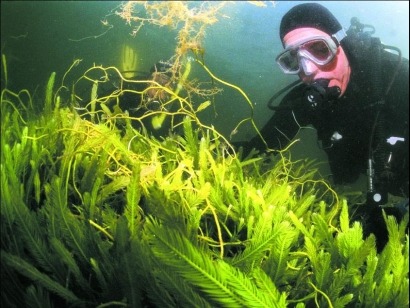
A team of scientists from Bio Architecture Lab (BAL) has developed breakthrough technology that helps to further enable the wide-scale use of seaweed (macroalgae) as a feedstock for advanced biofuels and renewable chemical production. The team engineered a microbe to extract the sugars in seaweed and convert them into renewable fuels and chemicals, thus making seaweed a real renewable biomass contender.
“About 60 percent of the dry biomass of seaweed are sugars, and more than half of those are locked in a single sugar - alginate,” said Daniel Trunfio, Chief Executive Officer at Bio Architecture Lab. “Our scientists have developed a pathway to metabolize the alginate, allowing us to unlock all the sugars in seaweed, which therefore makes macroalgae an economical alternative feedstock for the production of renewable fuels and chemicals.”
BAL’s scientific breakthrough is detailed in an article entitled An Engineered Microbial Platform for Direct Biofuel Production from Brown Macroalgae, which appears on the cover of the January 20 issue of Science magazine. “It is both an incredible scientific achievement and a distinguished honor to be published in Science, and I am very proud of our team,” said Trunfio. “It is yet another strong validation of BAL’s breakthrough technology.”
Seaweed can be an ideal global feedstock for the commercial production of biofuels and renewable chemicals because in addition to its high sugar content it has no lignin, and it does not require arable land or freshwater to grow.
Globally, if three percent of the coastal waters were used to produce seaweed than more than 60 billion gallons of fossil fuel could be produced. Today, in many parts of the world, seaweed is already grown at commercial scale. BAL currently operates four seaweed farms in Chile and has had great success in growing seaweed at economically viable production yields.
“BAL's technology to ferment a seaweed feedstock to renewable fuels and chemicals has created an entirely new pathway for biofuels development, one that is no longer constrained to terrestrial sources,” says ARPA-E Program Director Dr. Jonathan Burbaum. “When fully developed and deployed, large scale seaweed cultivation combined with BAL’s technology promises to produce renewable fuels and chemicals without forcing a trade off with conventional food crops such as corn or sugarcane.”
For additional information:

